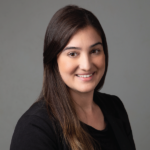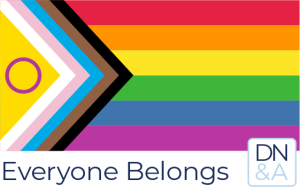Dr. Noble & Associates Blog
Coping with Health Anxiety and OCD During COVID-19
By Chanelle Salonia, Ph.D.
With some people, health anxiety and obsessive-compulsive disorder (OCD) symptoms have surged with living through the pandemic. The symptoms are connected to the fear about getting sick.
For the past two and a half years, people have been so stressed out with this pandemic … and living in a world of uncertainty has not helped!
Health anxiety is all about increased worry, tension or feeling scared, and OCD shows in feeling anxious then performing compulsive or ritualistic behaviours to calm.
Those of us that don’t live with OCD may begin to feel more optimistic about our lives returning to normal this summer, but those struggling with health anxiety or OCD don’t necessarily think so. Part of what makes health anxiety and OCD so painful is uncertainty. The key to managing it is to learn to tolerate uncertainty.
If you do struggle with health anxiety or OCD, you can feel better. It just means that you need to do two things:
- Adjust your thought patterns and brain responses
- Understand that returning to “normal pre-covid life” may not be as straightforward as you think
Here's the Science
If you’re anxious, you may be living with a heightened alert system, which activates cortisol, the stress hormone, as well as activating other physiological responses such as increased heart rate, shallow breathing, or stomach-aches. The way we react to a potential threat depends on which autonomic nervous system takes control. Often times, these responses are unconscious and have been learned over time.
Our sympathetic and parasympathetic nervous systems drive our fight, flight, or freeze response to a situation. These are quick actions that are taken in the moment of perceived danger. Sometimes our brains can be so brilliant and adaptive!
Our nervous system can function as a defense mechanism that is driven by a desire to protect ourselves. The problem lies in our brains can get stuck, thinking that danger lurks around every corner … All the time.
Here’s the key:
- Understand these automatic responses
- Know the automatic responses can be learned over time
- Learn how to respond differently to the situation that you are afraid of
- Realize this is the start of behaviour change and feeling better
How to Cope
Whether you are anxious or have OCD, tap into your rational mind. It can intervene when everything feels dangerous, it’s not driven by an automatic stress response.
- Consult with a mental health professional experienced with OCD and expertise in anxiety-related disorders. Look for one who is experienced with cognitive behaviour therapy and “exposure-response prevention” treatment.
- Use deep breathing techniques to help increase oxygen and stimulate your parasympathetic nervous system (the calming side)
- Talk openly and communicate with loved ones
- Engage in positive-based activities
- Do low risk activities like visiting friends outdoors or in a well-ventilated area increasing the level of challenge over time to attain a more normal life
- Continue to use public health recommendations on when and how much to hand wash, or indoor/outdoor gathering restrictions
- Write down the guidelines for home and hand washing and stick only to that written schedule, don’t let it increase. This will prevent your compulsive behaviours from becoming disabling and unreasonable
- Decide as a family – when you’re calm – what your routines will be and learn to tolerate some anxiety
- Avoid excessive news watching and internet checking on COVID-related risks and topics.

Chanelle Salonia, Ph.D.
Doctoral Intern
For over 10 years, Chanelle has worked in a variety of settings, including, a not-for-profit community agency, school boards, and private practice.
Chanelle works with adult individuals, with concerns such as anxiety, depression, life transitions, and stress management. Additionally, Chanelle is experienced with social skills training, as well as Applied Behaviour Analysis techniques for children experiencing behavioural difficulties, and individuals with intellectual disabilities experiencing behavioural difficulties.
Chanelle is a doctoral candidate, pursuing her Ph.D. in clinical psychology at Fielding University and is supervised by Dr. Cheryl Noble.



